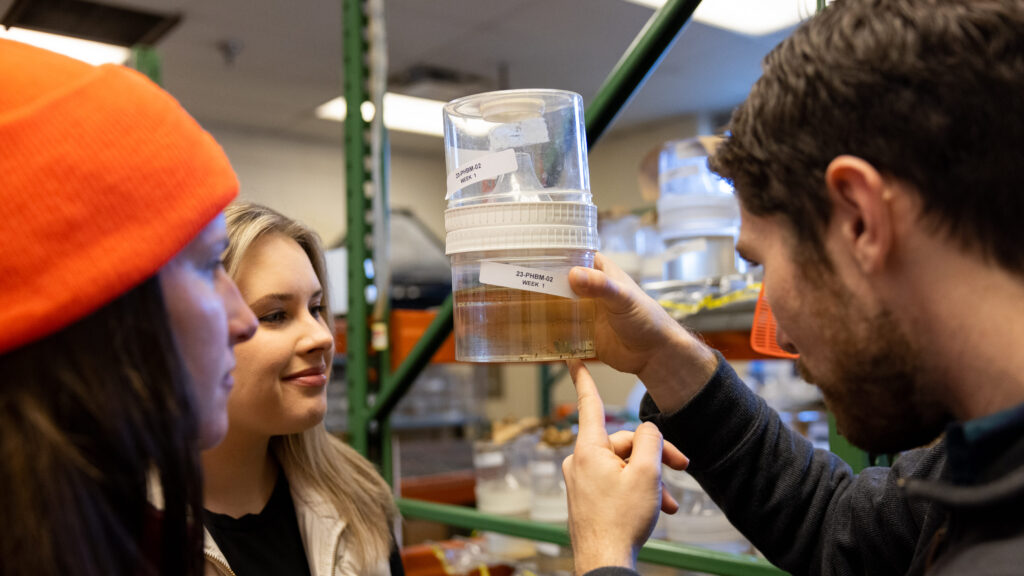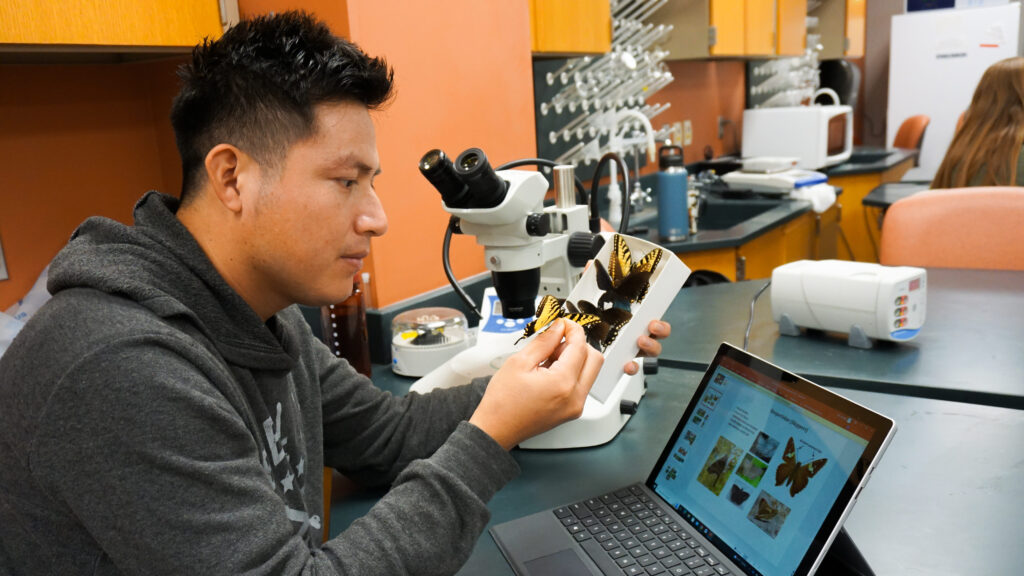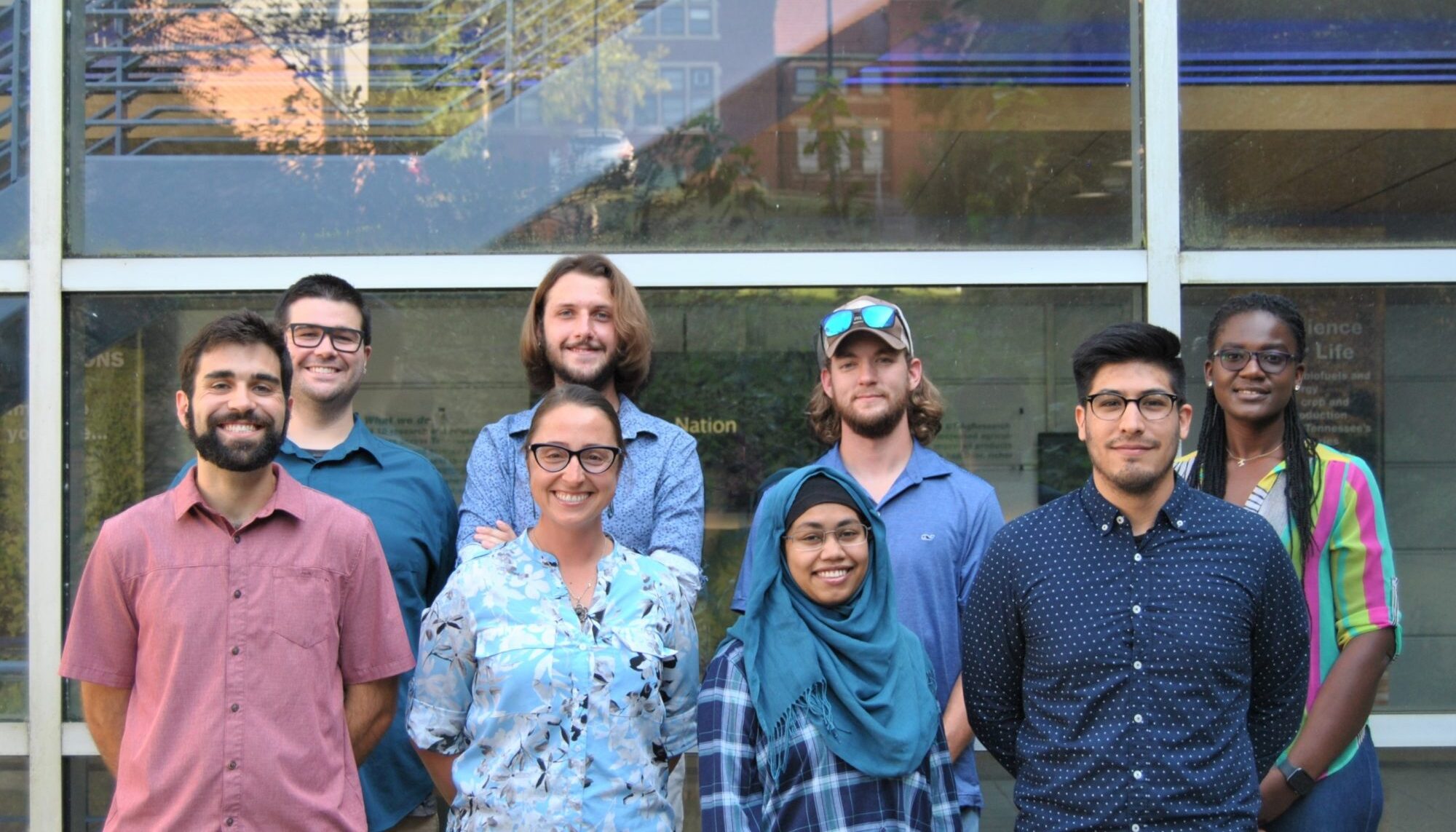We offer both thesis and non-thesis master’s degrees. Our master’s degree program provides students with the principles and research background for a career in life sciences. Our graduates have obtained positions at academic institutions, in public service or the private sector, or have gained admission to doctoral programs.



Thesis Option
Choose from three concentrations:
- Bioinformatics and Genomics
- Entomology
- Plant Pathology
Many of the specialties within the department involve cross‑disciplinary activity, which involves collaborations with soil scientists, plant geneticists, horticulturists, veterinarians, and ecologists. For instance, the department has special interest and expertise in alternative methods of insect and disease management, such as biological control, resistant cultivars, integrated pest management, and cultural techniques, to help meet the need for healthful food production without or with reduced use of pesticides.
Non-Thesis, Coursework Only Option
There are no concentrations for the coursework only option. In lieu of a thesis or a non-thesis project, students are required to complete 30 credit hours of academic courses.
Non-Thesis, Project Option
There are no concentrations for the non-thesis option. In lieu of a thesis, students are required to complete a project/practicum and prepare a written report summarizing project findings. Students working on a project/practicum must complete 30 credit hours of graduate credit, which includes one to four credit hours of EPP 503, and an acceptable seminar presentation for one credit hour. Final oral and written examinations covering the project and coursework are required and must be passed to the satisfaction of the advisory committee after the project/practicum has been completed. Students who select the non-thesis M.S. option are not eligible for Graduate Research or Teaching Assistantships but may receive hourly pay based on the availability of major advisor grant/contract funds. The non-thesis option is directed primarily at those who are already employed full-time and wish to fulfill degree requirements over a longer time period.
Graduate Minor Options
A minor is not required but may be selected at the option of the student. A minor will include at least 6 and not more than 10 semester hours of graduate‑level credit in the minor department. The student’s graduate committee must include a faculty member from the minor department to assist in designating courses required for the minor.
- Bioinformatics: Agriculture & Natural Resources
- Entomology
- Plant Pathology
View our academic catalog to explore required credit hours, courses, and non-course requirements.
For more information on the program and whether it is a good fit for you, contact our Director of Graduate Studies, Dr. Bonnie Ownley at eppgrad1@utk.edu. The UT Graduate Admissions website has information on applying to the Graduate School, as well as requirements for admission.

